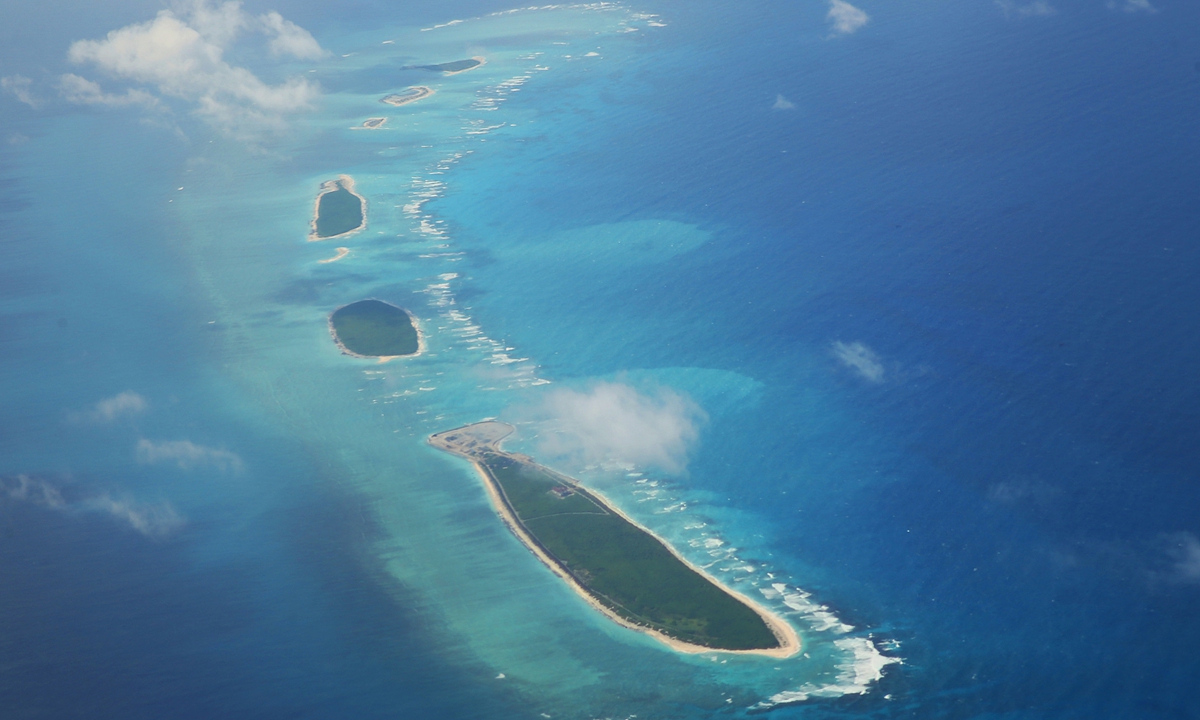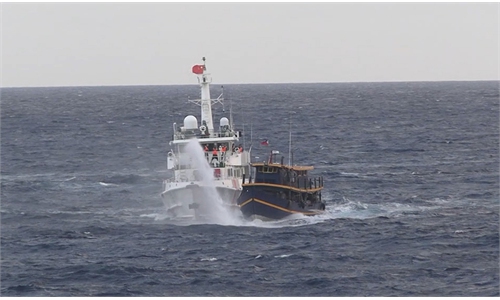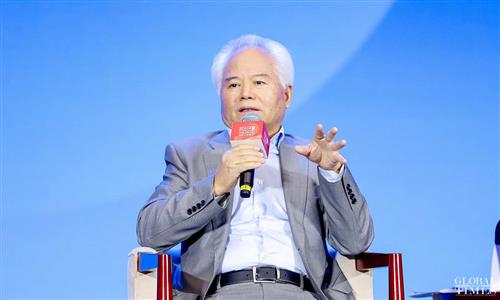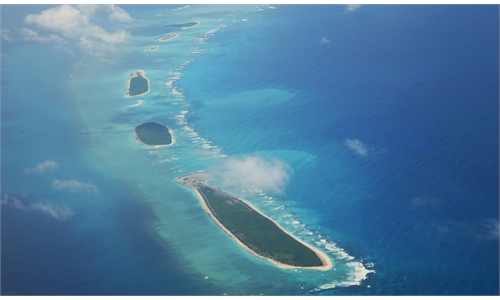
South China Sea Photo: VCG
As Indonesian President Joko Widodo kicked off his visit to the Philippines with the South China Sea issue on the agenda, Chinese experts believe that as leader of a major country in the region, Widodo will try to talk some sense into his Filipino counterpart to stop instigating tensions in the South China Sea, and that the Code of Conduct cannot be reached without the consensus of all regional countries, which must include China.
After meeting with Widodo on Wednesday, Philippine President Ferdinand Marcos Jr said they had a "fruitful and honest discussion" on regional events of mutual interests including developments in the South China Sea, media reported.
However, the Indonesian side made no such mention of this, saying only that the two countries agreed to "expedite revision of joint border patrol and crossing agreements, also to strengthen the defense cooperation including on military hardware," the Strait Times reported on Wednesday.
Ahead of Widodo's three-day visit to the Philippines, Indonesian Foreign Minister Retno Marsudi said on Tuesday her country is "ready to work together with all ASEAN member states including the Philippines to finalize the [South China Sea] Code of Conduct as soon as possible," Reuters reported.
Widodo's trip to the Philippines demonstrates Indonesia's strong commitment to maintaining peace and stability in the region, Gu Xiaosong, dean of the ASEAN Research Institute of Hainan Tropical Ocean University, told the Global Times on Wednesday.
Experts said that the Indonesian president's visit came at a time when the world is in tumult, with the US, Europe and the Middle East being all embroiled in turmoil, while the Philippines is still trying to stir up troubles in the South China Sea that may threaten the hard-won peace and stability in Southeast Asia.
Indonesia understands the value of peace and the positive relations with China, Gu said, so Widodo will likely engage in talks with Marcos to urge the Philippines to abandon its attempt to seek external interference from countries like the US to try deterring China, as well as call for the formation of a code of conduct that is agreed upon by all regional countries, including China.
Although China and ASEAN have been working on a South China Sea code of conduct for more than two decades, the Philippines claimed in November 2023 that it is pushing for a separate set of rules and regulations with its neighbors, excluding China.
Gu said Marcos' proposal is simply not possible because many ASEAN member countries would not come on board with a plan that will provoke China. "Most ASEAN members are friendly toward China, as time has proven that closer ties with China will greatly boost their economy, trade and investment and tourism."
Wu Shicun, president of the National Institute for South China Sea Studies, warned that the Philippines' move is destructive to the unity and cohesion of ASEAN, which are of utmost importance, and could even lead to the division of ASEAN itself.
Wu criticized the recent provocative actions by the Philippines as "naive" and "veering off track." He noted that China is not the only claimant in the South China Sea, but more importantly, a key player in the negotiations regarding the disputes, and without China's participation, the "code of conduct" has no meaning.



